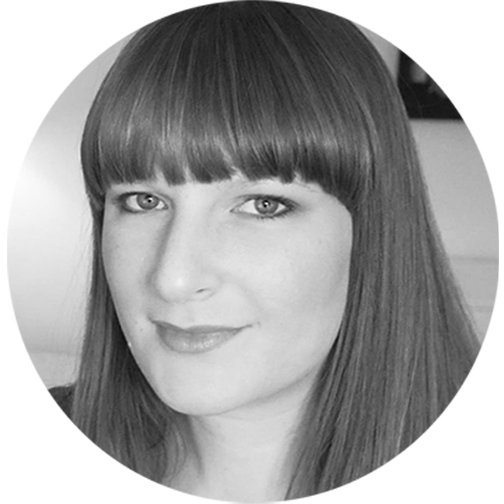Modern parenting has a snake oil problem
It's not just vaccines...

A free daily email with the biggest news stories of the day – and the best features from TheWeek.com
You are now subscribed
Your newsletter sign-up was successful
It's not just vaccines.
My Brooklyn neighborhood is one of the most affluent and educated in the U.S., yet I've lost count of the conversations I've overheard where moms and dads have exchanged quack tips on caring for colicky, teething, or ill children. These parents might now blanche at anyone who denies the science of vaccinations, but they have their own questionable theories on which they hang their hats.
Want to witness seemingly smart mothers and fathers hand out phone numbers for emergency homeopaths, talk passionately on the subject of cranial osteopathy for infants, or boast about dripping breast milk into a baby's ear for a severe infection? Head to any park or play space in my gentrified borough.
The Week
Escape your echo chamber. Get the facts behind the news, plus analysis from multiple perspectives.

Sign up for The Week's Free Newsletters
From our morning news briefing to a weekly Good News Newsletter, get the best of The Week delivered directly to your inbox.
From our morning news briefing to a weekly Good News Newsletter, get the best of The Week delivered directly to your inbox.
Are these people actually quitting western medicine in favor of folk remedies? Not necessarily. But they are choosing to supplement with alternative treatments, assuming perhaps that science — as well as their own handpicked pediatrician — does not have all the answers.
Since these well-to-do parents will gladly pay for advanced Mandarin tutoring for their toddlers or musical enrichment classes for their newborns, why not top up the doctor's advice with alternative remedies? Let's really nip this thing in the bud, they think. And besides, what harm can it possibly do?
This is where their "always-do-more" philosophy becomes dangerously unstuck.
When parents head down a drugstore's alternative medicines aisle, they're trusting that these products are safe, and quite possibly effective. Holistic medicine is, they assume, gentle on the body, kind on the wallet, and made by wise folk who smell faintly of jasmine and aren't particularly motivated by money. Except none of this is true.
A free daily email with the biggest news stories of the day – and the best features from TheWeek.com
These products are not cheap. A pack of 250 Hyland's homeopathic teething tablets currently sell on Amazon for $13.99. In 2012, sales of herbal and homeopathic remedies reached $6.4 billion in the U.S. alone, up 3 percent on the previous year, netting their multinational manufacturers healthy profits. Boiron, the world's largest producer of homeopathic products, has annual revenues exceeding $600 million. In 2011, the company was the target of a class action lawsuit in California that claimed it used false and misleading advertising to market a homeopathic cold and flu remedy. Boiron eventually agreed to refund customers $5 million, but denied any wrongdoing.
Some might argue that alternative medicines are just harmless placebos for anxious parents. But that's not always the case.
Take amber bead teething necklaces, which are virtually a right of passage for Brooklyn babies. Their makers claim that when amber is warmed by the body, an analgesic substance called succinic acid is released by the beads and absorbed through the skin. Not only is there no scientific evidence to back up these claims, but placing beads around an infant's neck poses the double risk of choking (should the necklace break apart and a bead becomes lodged in the child's airway) and strangulation. France and Switzerland have banned the sale of this cute but potentially lethal accessory in pharmacies.
And how about the ever-popular Hyland's Teething Tablets? This homeopathic product was voluntarily recalled in 2010 for containing inconsistent amounts of belladonna — a substance that can cause serious side effects in large enough doses. (The company reintroduced the product with a new formula in 2011.) Given that homeopathy's entire shtick is watering down active ingredients so much that no molecules of the original substance remain, this was a serious oversight. And yet the manufacturer remains a trusted household brand.
Educated consumers, who can't discriminate between scientifically verifiable medical treatments and holistic hokum, need to be called out on their bad judgment. Choosing to dose your baby with a homeopathic remedy might not pose a public health risk like not vaccinating, but it's just as wrong-footed.
"But these product really do work!" insist many of the parents who use them. In all likelihood, they don't — even if they seem to soothe your rambunctious little one. The reason is simple: Homeopathic pills are often coated in sugar, which humans have evolved to crave. Give a baby anything super sweet and it'll likely quieten down.
That's not to say I'm against dispensing candy to toddlers. I'm just against calling it medicine.
-
 The broken water companies failing England and Wales
The broken water companies failing England and WalesExplainer With rising bills, deteriorating river health and a lack of investment, regulators face an uphill battle to stabilise the industry
-
 A thrilling foodie city in northern Japan
A thrilling foodie city in northern JapanThe Week Recommends The food scene here is ‘unspoilt’ and ‘fun’
-
 Are AI bots conspiring against us?
Are AI bots conspiring against us?Talking Point Moltbook, the AI social network where humans are banned, may be the tip of the iceberg
